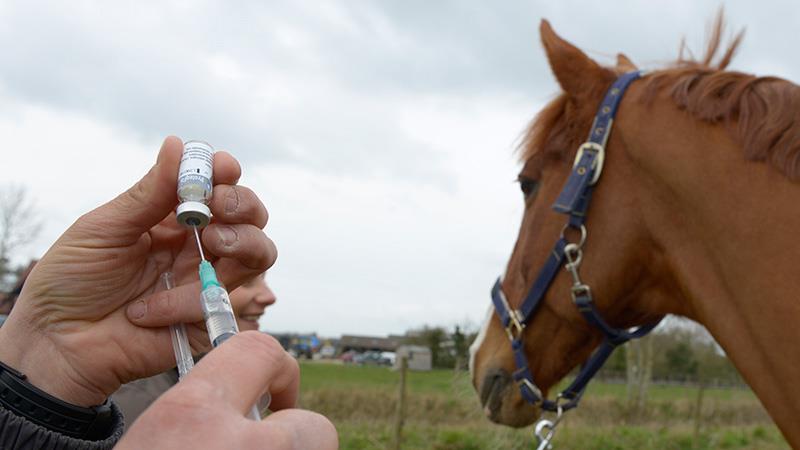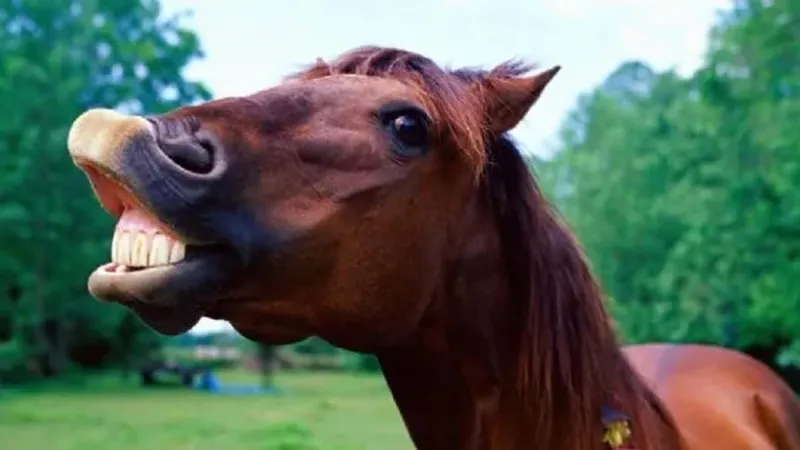A horse’s dental health is crucial for its overall well-being and performance. Regular dental examinations and care are essential to maintain the health and comfort of horses. In this article, we will explore the significance of regular equine dental examinations and highlight the key aspects of maintaining optimal dental health for horses.
The Equine Dentition: A Unique Structure
Horses possess a unique dental structure that is specially adapted to their dietary needs. With a set of powerful teeth designed for grinding and chewing fibrous plant material, horses have evolved to efficiently process their forage-based diet. Understanding the anatomy and function of a horse’s teeth is vital for ensuring their dental health.
Common Dental Issues in Horses
Regular dental examinations allow veterinarians to identify and address common dental issues that horses may experience. Some of these issues include:
- Dental Malocclusions: Malocclusions, or improper alignment of the teeth, can lead to painful points, ulcers, and difficulty in chewing and swallowing food.
- Sharp Edges and Hooks: Over time, horses’ teeth may develop sharp edges and hooks that can cause discomfort and oral ulcers. These sharp points need to be filed down regularly to prevent complications.
- Periodontal Disease: Just like humans, horses can develop periodontal disease, which affects the gums and surrounding structures. Regular dental examinations can help detect early signs of periodontal disease and prevent its progression.
- Tooth Loss and Abscesses: Untreated dental issues can result in tooth loss and the formation of painful abscesses. Regular dental care can help prevent these severe consequences.
The Importance of Regular Dental Examinations

Regular dental examinations are essential for maintaining the health and well-being of horses. Here are four reasons why regular dental examinations are crucial:
- Pain Prevention: Dental issues can cause significant pain and discomfort for horses. Regular examinations allow veterinarians to identify and address problems early, preventing unnecessary suffering.
- Optimal Digestion: Proper chewing and grinding of feed is essential for the horse’s digestion. Dental abnormalities can interfere with this process, leading to poor nutrient absorption and weight loss. Regular dental care ensures horses can efficiently process their food.
- Improved Performance: Dental issues can affect a horse’s performance, as discomfort and pain can lead to resistance, reduced appetite, and decreased performance. Regular dental examinations help maintain optimal oral health, which in turn contributes to better performance.
- Early Detection of Dental Problems: Regular examinations enable veterinarians to detect dental issues before they escalate into more severe problems. Early intervention can prevent the need for extensive and costly treatments down the line.
Maintaining Equine Dental Health
In addition to regular dental examinations, several practices contribute to maintaining a horse’s dental health:
- Balanced Diet: Providing horses with a balanced diet rich in fibrous forage promotes natural tooth wear and reduces the risk of dental problems.
- Dental Floatation: Dental floating, a procedure where sharp points and hooks are filed down, should be performed regularly by a qualified veterinarian to ensure optimal dental health.
- Dental Care Routine: Regularly inspecting the horse’s mouth, checking for signs of discomfort or abnormalities, and maintaining good oral hygiene are vital for maintaining dental health.
- Collaboration with Veterinarians: Working closely with equine veterinarians and scheduling regular dental check-ups are crucial for addressing any emerging dental issues promptly.
Conclusion:
Regular equine dental examinations are essential for maintaining a horse’s oral health, well-being, and performance. By identifying and addressing dental issues early on, veterinarians can prevent pain, improve digestion, enhance performance, and ultimately provide a higher quality of life for horses. Collaborating with a qualified veterinarian and implementing a comprehensive dental care routine will ensure the longevity and overall health of these magnificent creatures.

One thought on “The Importance of Regular Equine Dental Examinations”